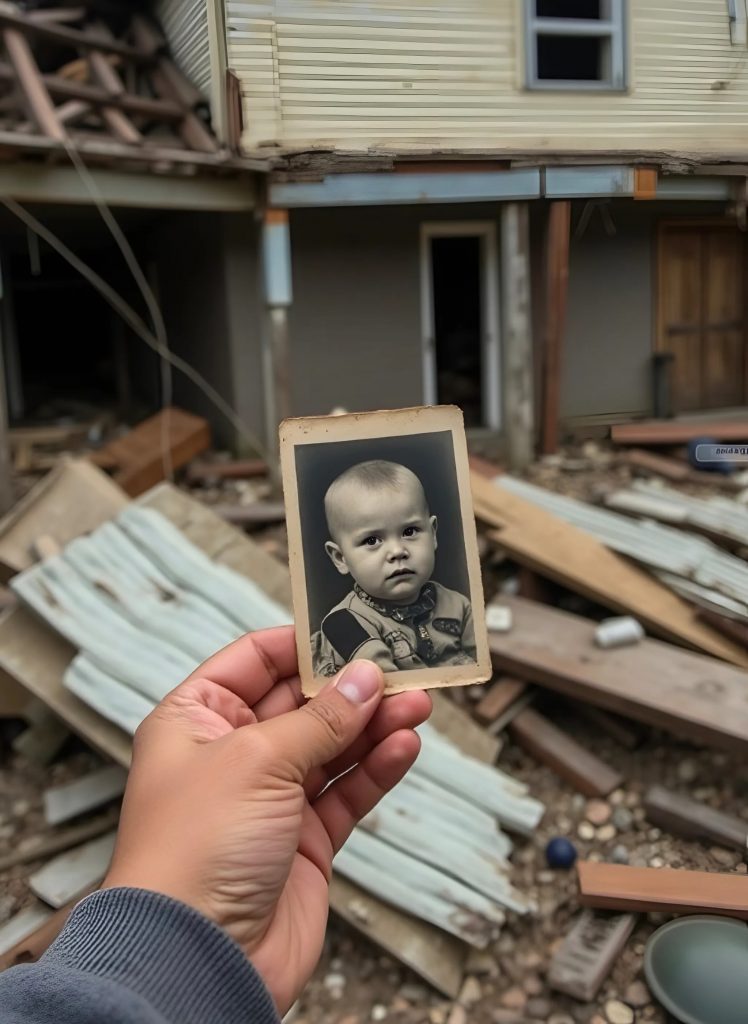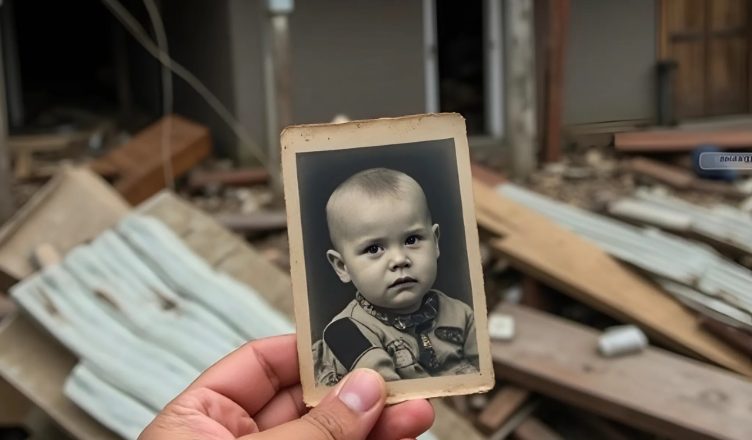Ethan Grayson was a name everyone knew. Real estate mogul, tech investor, billionaire by thirty-five. He built towers that touched the sky and neighborhoods that changed city skylines. His latest project was no exception—a sleek luxury complex planned on the quiet edge of the city, a place he saw only as valuable land, not memories.
There was, however, one problem: a single, crumbling house still stood at the center of the plot. A house that refused to fall.
The owner was an old man named Walter. He had lived there for decades. The place looked like it belonged to another century—faded wood, broken windows, vines climbing over cracked stone. Ethan’s team offered him everything: money, a new apartment, even lifetime care. But Walter refused. Repeatedly.
He said only one thing:
— This house has history. My whole life is in these walls.
Eventually, Ethan went to court and, unsurprisingly, won. The demolition was scheduled. The machines arrived.
That morning, Ethan stood at a distance, hands in his pockets, watching the excavators roar to life. He felt nothing. Just another piece of land, soon to be another project. Another win.
But then a worker called out:
— Sir! You might want to see this.
Ethan frowned and walked over, annoyed at the interruption.
Lying in the rubble was a small, dusty picture frame. The glass was cracked, but the photograph inside was intact. He picked it up.
And froze.
It was him.

A six-year-old boy. Short hair, scraped knees, standing barefoot in a tiny backyard. Smiling wide.
On the back of the photo, in faded handwriting:
“Ethan – summer 1991. Our sunshine boy.”
His heart dropped.
It couldn’t be.
Memories he had long buried began to rise—his mother’s soft voice, the old swing in the yard, the scent of fresh tomatoes from the garden. He had been there before. In that house.
It wasn’t just another property.
It had once been his home.
As a child, Ethan had lived there briefly with his grandparents after his parents died in a car crash. He barely remembered those years. He was too young, too confused. Eventually, he was sent to live with distant relatives in another state. He never came back. The years blurred into ambition, success, and distance.
But now, standing in the ruins of the very house that once sheltered him, he felt like a boy again—lost and small.
He clutched the photo and walked away.
That evening, Ethan did something unthinkable for a man like him: he halted the project.
The next morning, he drove to the apartment where the city had relocated Walter. The old man was sitting silently by the window, staring out, his hands folded in his lap.
Ethan sat down in front of him. He placed the photo on the table.
Walter’s eyes filled with tears.
— I kept it, — the old man said softly. — You were all I had left.
And suddenly, Ethan remembered it all.
Walter wasn’t just the old man who owned the last piece of land.
He was his grandfather.
The man who had held him when he cried, who had built him a treehouse, who had promised, long ago, that no matter what, he’d always have a place to come back to.
Ethan had forgotten.
But Walter never did.
In the weeks that followed, Ethan didn’t just restore the house—he rebuilt it, brick by brick, memory by memory. Not as a museum. But as a home.
And he moved in.
Not as a millionaire.
As a grandson.
Because sometimes, in the ruins of ambition, we find the pieces of ourselves we lost. Sometimes, what looks like the end is actually a return.
A single photograph in the rubble reminded him who he was.
And who he still had the chance to be.
